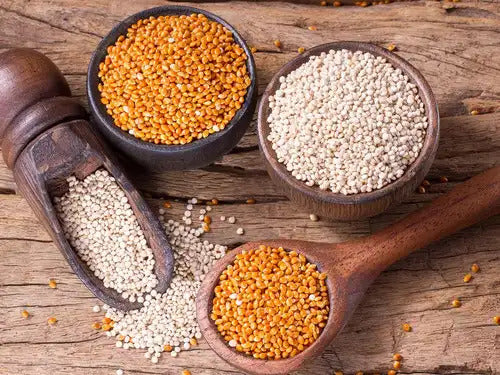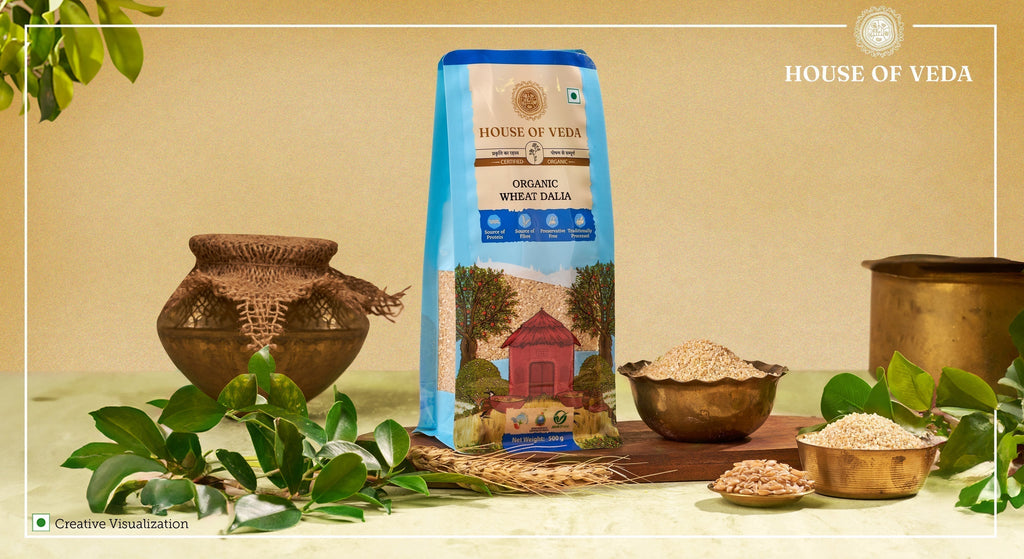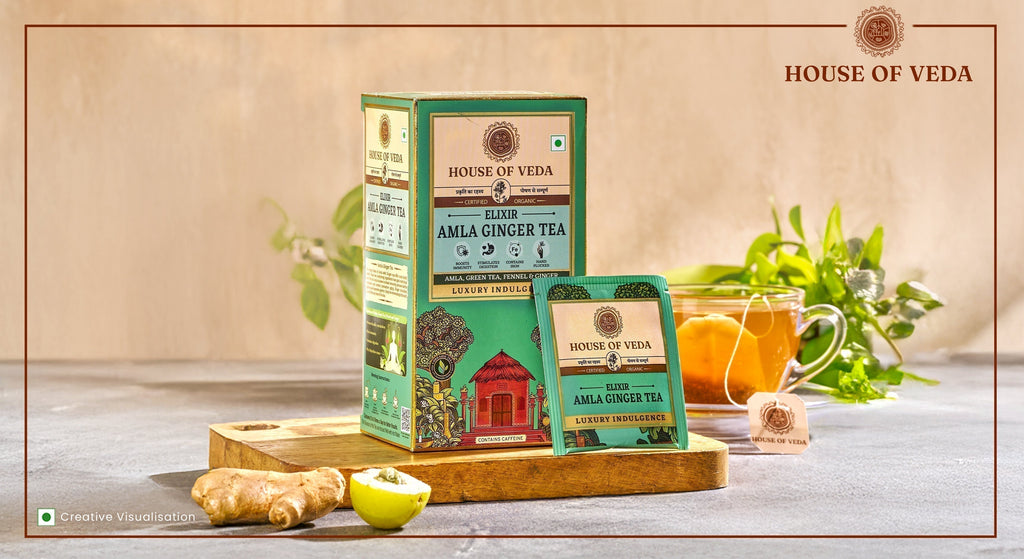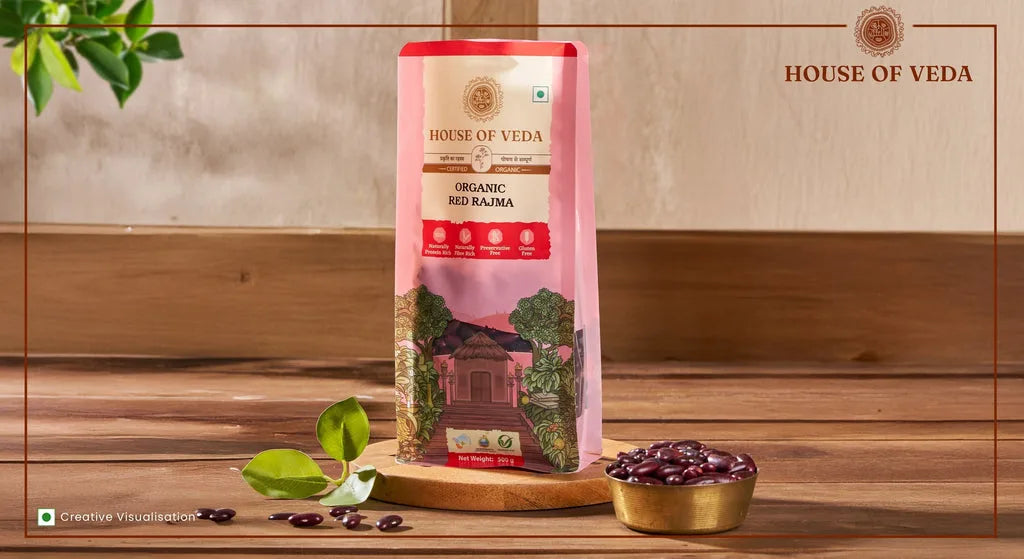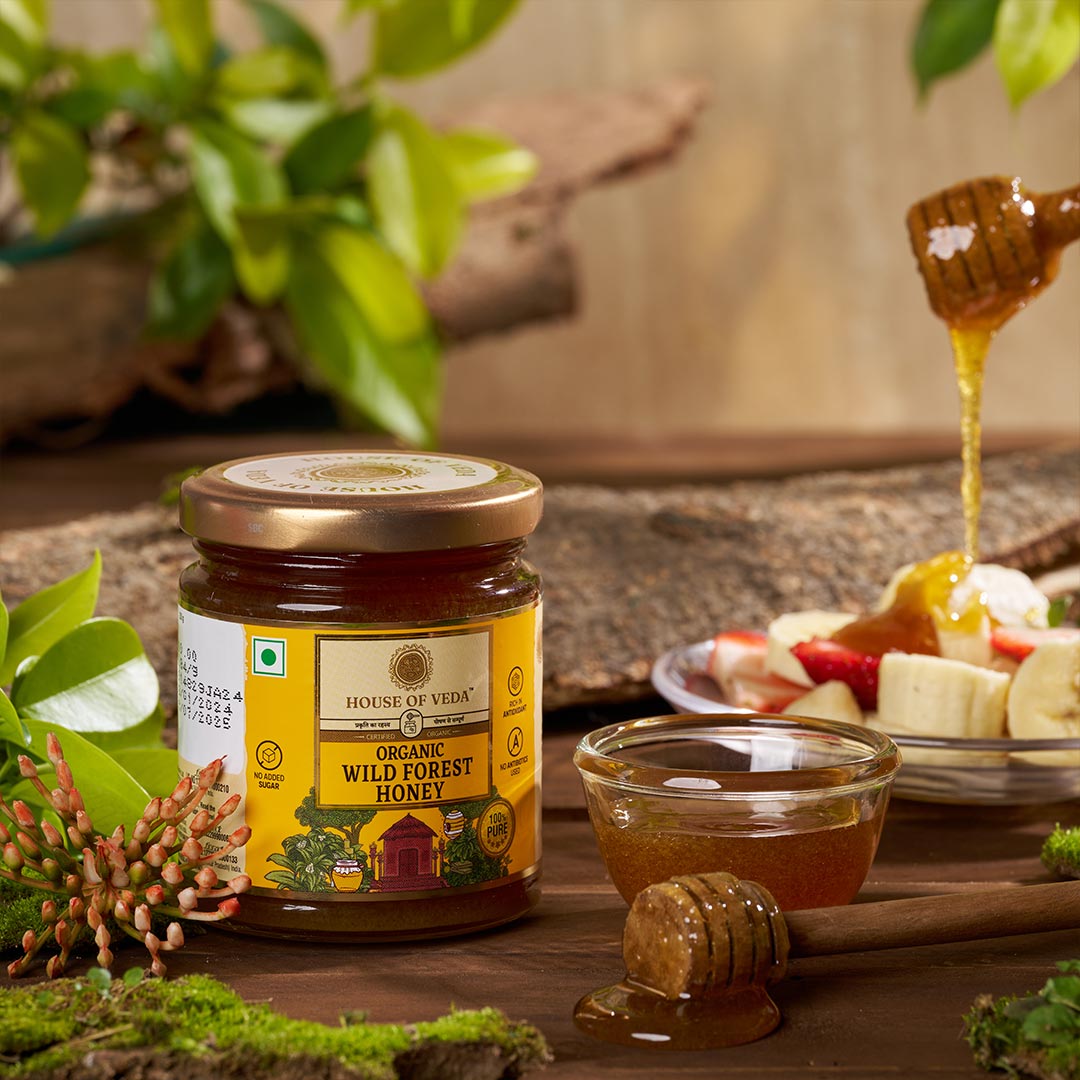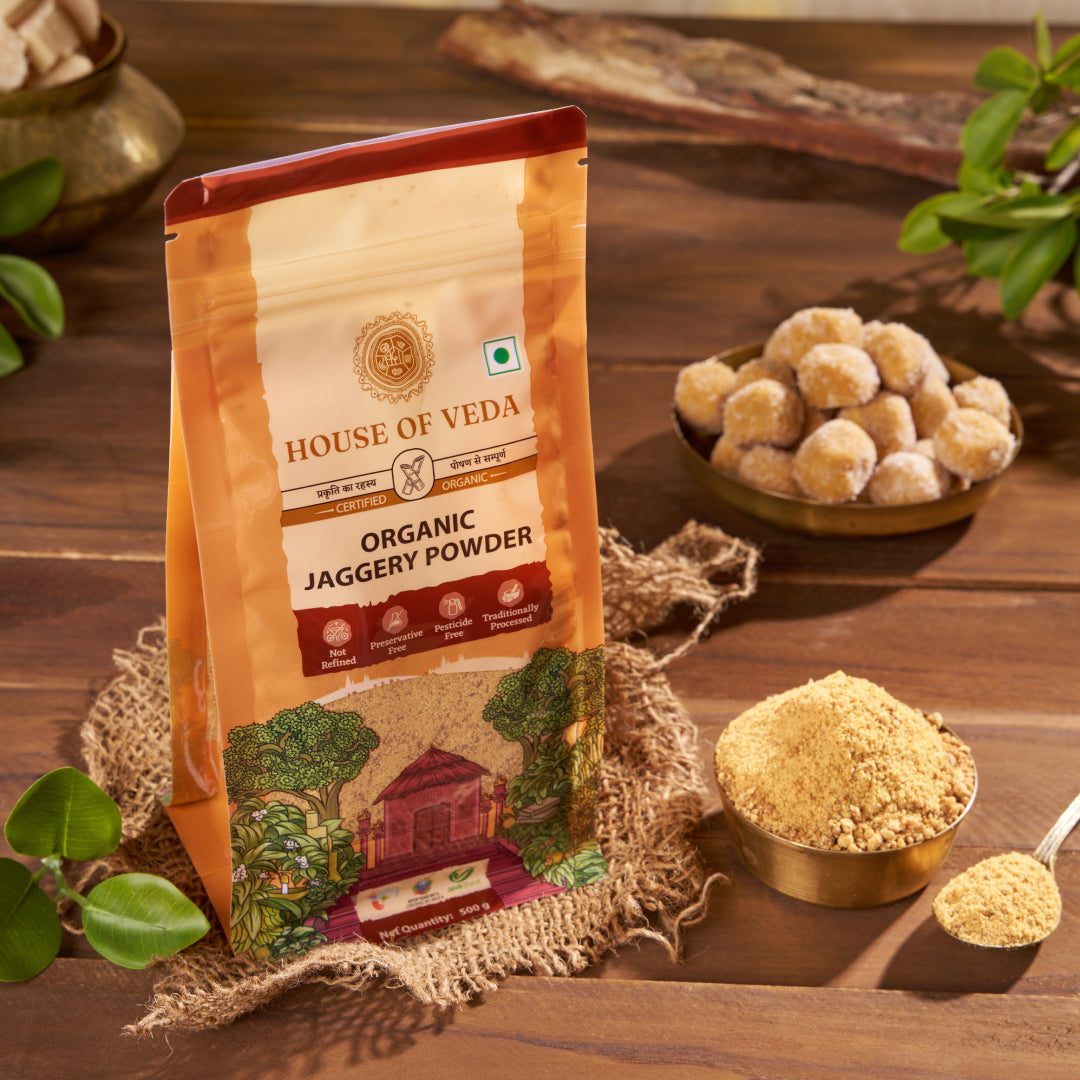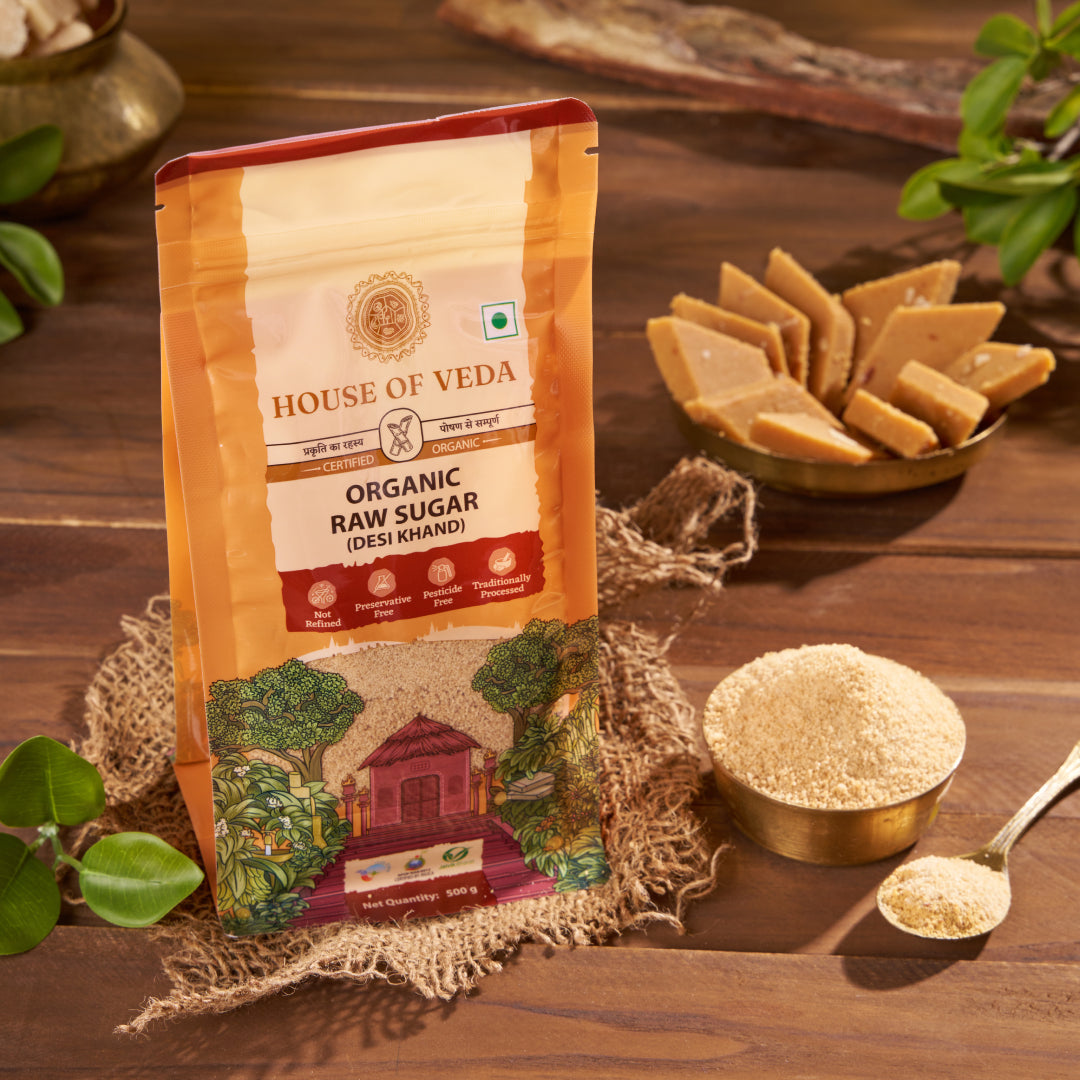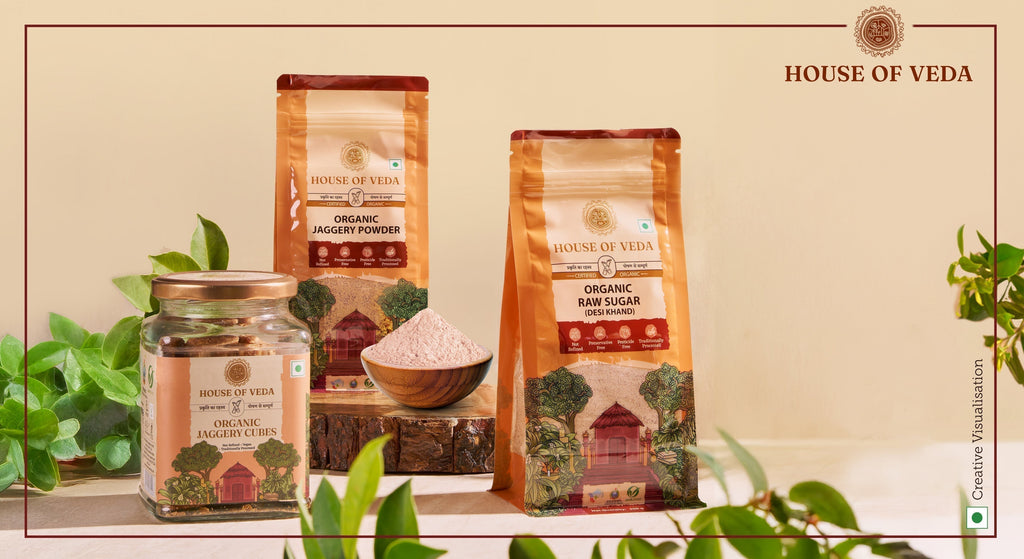
Choosing the Right Natural Sweetener: Jaggery vs Coconut Sugar vs Raw Sugar

As health consciousness continues to grow, more individuals are looking for wholesome alternatives to refined sugar. Artificial sweeteners and highly processed sugars are being replaced by more natural, nutrient-rich options. Among the most talked-about organic sweeteners are jaggery, coconut sugar, and raw sugar. These minimally processed sugars not only serve as healthier substitutes but also offer unique flavors and health benefits.
But which one should you choose? Is jaggery better than white sugar for weight loss? Can coconut sugar be a one-to-one substitute for refined sugar in baking? And what about raw sugar; is it truly healthier or just a marketing gimmick?
This comprehensive guide will answer these questions and more. We’ll explore what each sweetener is, how it’s made, its nutritional benefits, culinary uses, and health considerations. By the end of this article, you’ll have a clear understanding of how to choose the best sweetener for your lifestyle.
The Growing Demand for Organic Sweeteners
The movement toward organic, natural, and minimally processed foods has brought sweeteners into the spotlight. With increased awareness about the dangers of high sugar consumption—including obesity, diabetes, heart disease, and metabolic disorders—many are actively seeking better alternatives.
Organic sweeteners are perceived as safer and more nutritious because they undergo minimal chemical processing, often retain more nutrients, and are typically free from artificial additives. Moreover, when these sweeteners are ethically sourced and organically certified, they contribute to environmental sustainability as well.
In this article, we’ll examine three of the most popular choices: jaggery, coconut sugar, and organic raw sugar.
What Are Jaggery, Coconut Sugar, and Raw Sugar?
Jaggery, coconut sugar, and raw sugar are natural sweeteners derived from sugarcane or palm sources, each offering unique flavors and nutritional profiles.
Jaggery: The Ancient Indian Sweetener
Jaggery is a traditional unrefined sweetener commonly used in Indian households. It is made by boiling raw sugarcane juice or palm sap until it solidifies into blocks or granules. This method preserves essential minerals like iron, magnesium, and potassium.
Coconut Sugar: The Tropical Delight
Coconut sugar is made from the sap of coconut palm flowers. The sap is heated until it crystallizes into granules. Minimal processing and a naturally low glycemic index make it a popular choice among health enthusiasts.
Raw Sugar: The Less-Refined Cousin
Raw sugar is partially refined sugar that still retains some molasses content. It typically has a golden color and a coarse texture. While it is a step up from refined white sugar, it doesn't offer the same nutritional benefits as jaggery or coconut sugar.
1. How Are These Sweeteners Made?
Jaggery Production
- Extracted from sugarcane juice or palm sap.
- Juice is boiled until thick and viscous.
- Poured into molds to form blocks or granules.
- No chemical refining.
Coconut Sugar Production
- Sap is tapped from the flower buds of the coconut palm.
- Sap is boiled until it thickens and crystallizes.
- Minimal refining ensures nutrient retention.
Raw Sugar Production
- Made from sugarcane.
- Juice is boiled and spun in a centrifuge to separate crystals from molasses.
- Lacks bleaching or extensive chemical processing.
2. Nutritional Breakdown
|
Nutrient |
Jaggery |
Coconut Sugar |
Raw Sugar |
|
Calories |
~383 per 100g |
~375 per 100g |
~387 per 100g |
|
Iron |
High |
Low-Moderate |
Low |
|
Magnesium |
High |
Moderate |
Low |
|
Potassium |
Moderate |
Moderate |
Low |
|
Calcium |
Moderate |
Moderate |
Low |
|
Antioxidants |
Yes |
Minimal |
No |
|
Glycemic Index |
~40-50 |
~35 |
~60 |
3. Organic Jaggery: The Traditional Powerhouse
Jaggery is much more than a sweetener—it's a powerhouse of nutrition in its raw, unprocessed form.
- Iron-rich: Particularly beneficial for individuals, especially women, prone to anemia. Regular consumption can naturally boost haemoglobin levels.
- Digestive aid: Used traditionally after meals in India, jaggery helps activate digestive enzymes and supports smoother digestion.
- Detoxifier: Known for its cleansing properties, it helps remove toxins from the liver and lungs.
- Respiratory relief: Especially beneficial in winters, jaggery is known to ease symptoms of cough and congestion.
-
Best for: People with iron deficiency, those needing warmth during winters, and individuals seeking a natural detoxifier.
4. Coconut Sugar: The Tropical Sweetener
A rising star in the health-conscious world, coconut sugar provides sweetness without the spike.
- Low GI: With a glycemic index of around 35, it's less likely to cause blood sugar spikes, making it a safer alternative for people with insulin resistance or prediabetes.
- Gut-friendly: Contains inulin, a naturally occurring prebiotic fiber that supports gut health and improves digestion.
- Rich in trace minerals: Offers small amounts of zinc, calcium, potassium, and antioxidants that support overall wellbeing.
- Sustainable: Environmentally friendly due to minimal water requirements and long lifespan of coconut palms.
-
Best for: Diabetics (in moderation), gut health, sustainable living, and weight watchers looking for an energy-stable sweetener.
5. Raw Sugar: The Less-Refined Option
Raw sugar bridges the gap between refined and unrefined sweeteners but has limited health perks.
- Less processed: Retains a small amount of molasses, offering a richer taste and slightly better nutritional profile than white sugar.
- Easy substitute: Because of its taste and texture, it’s a convenient switch for those used to regular sugar in tea, coffee, or baking.
- Lower nutrient profile: Compared to jaggery or coconut sugar, it lacks meaningful amounts of vitamins or minerals.
- Neutral taste: Appeals to consumers seeking a mild flavor that doesn’t alter the taste of food.
-
Best for: Occasional use, general sweetening, and users seeking a basic but slightly healthier white sugar replacement.
6. Culinary Uses and Flavor Profiles
|
Sweetener |
Flavor Profile |
Best Uses |
|
Jaggery |
Earthy, caramel, rich |
Indian sweets, teas, sauces, baking |
|
Coconut Sugar |
Mild, caramel-like |
Baking, smoothies, cereals, coffee |
|
Raw Sugar |
Mildly sweet, neutral |
Tea, coffee, cereal, baking |
- Jaggery: Often used in traditional Indian recipes like chikki, halwa, and jaggery tea.
- Coconut Sugar: Excellent for baking and beverages. Blends well with oatmeal, cookies, and cakes.
-
Raw Sugar: Works as a 1:1 substitute for white sugar in most recipes.
7. Which One is Best for Weight Loss?
Jaggery and coconut sugar are often marketed as healthier options for weight loss. However, all sweeteners contain calories, and excessive consumption can hinder weight management goals.
- Jaggery: Contains more nutrients but also more calories. Can help reduce cravings due to slow energy release.
- Coconut Sugar: Lower glycemic index makes it better for blood sugar control, helping reduce fat storage.
- Raw Sugar: Still a form of sucrose; not ideal for weight loss.
Verdict: Coconut sugar edges ahead due to its low GI and natural fiber content.
8. Are These Sweeteners Diabetic-Friendly?
- Jaggery: Despite its nutrients, it can still spike insulin.
- Coconut Sugar: Preferred option due to lower GI, but moderation is key.
- Raw Sugar: Not suitable for diabetics.
If you're managing diabetes, coconut sugar in moderation could be a safer choice. However, it’s always best to consult with a healthcare provider.
9. Sustainability and Sourcing
When buying natural sweeteners, it's not just about personal health—it's also about the health of the planet. Here’s how they stack up:
- Jaggery: Traditionally sourced and often made by rural farmers. Look for organic-certified and fair-trade options.
- Coconut Sugar: Highly sustainable. Coconut palms use less water and produce sap for 20+ years.
- Raw Sugar: Often comes from industrial-scale farming. Choose organic when possible.
House of Veda ensures all its products are ethically sourced, organically certified, and chemical-free, offering peace of mind with every purchase.
10. How to Choose the Right Sweetener for You
When selecting a natural sweetener, it's important to align your choice with your health needs and culinary preferences. Here’s how to pick the right one:
-
Digestive Support – Go for Jaggery
Jaggery is traditionally used to aid digestion and stimulate bowel movements. It contains minerals and plant compounds that can help soothe the digestive tract naturally. -
Blood Sugar Management – Choose Coconut Sugar
Coconut sugar has a lower glycemic index compared to jaggery and raw sugar, making it a better alternative for those watching their blood sugar levels or managing diabetes. -
For Versatile Baking – Raw or Coconut Sugar
Raw sugar offers consistency in recipes requiring crystalline texture, while coconut sugar blends well in cakes and cookies, adding a subtle caramel-like taste. -
Iron Boost – Pick Jaggery
Naturally high in iron and other micronutrients, jaggery is often used to improve hemoglobin levels and is especially beneficial for people prone to iron deficiency. -
Eco-Friendly Option – Coconut Sugar
Sourced from coconut flower sap, coconut sugar is harvested without cutting down trees, making it a more sustainable and environmentally conscious sweetener. -
Authentic Traditional Flavor – Stick with Jaggery
For classic Indian sweets and heritage recipes, jaggery delivers the authentic depth of flavor required in laddoos, payasam, and festive delicacies. -
Everyday Use – Coconut Sugar Wins
With its mild sweetness, mineral content, and low processing, coconut sugar is ideal for daily use in teas, cereals, and baked goods.
Conclusion
Choosing the right sweetener is about more than just taste. It’s about nourishing your body, aligning with your health goals, and respecting the planet. Whether it’s the iron-rich goodness of organic jaggery, the low-GI benefits of coconut sugar, or the ease of raw sugar, House of Veda ensures you get only the purest, organic-certified sweeteners.
Explore House of Veda’s curated collection of organic sweeteners—crafted for wellness, purity, and sustainability.
FAQs
1. Is jaggery better than sugar for weight loss?
Yes, jaggery is less processed and contains nutrients that help with metabolism and digestion, but it is still calorie-dense. Use it in moderation.
2. Can coconut sugar be used in place of white sugar in baking?
Yes. It has a similar sweetness level and works 1:1 as a substitute in most recipes.
3. Does raw sugar spike insulin levels like white sugar?
Yes, it can. While less refined, raw sugar is still high in sucrose.
4. Which sweetener is best for diabetics?
Coconut sugar is a better choice due to its low glycemic index, but it should still be used in moderation.
5. How is mineral content preserved in jaggery?
Jaggery is made without removing molasses, which retains iron, potassium, and magnesium naturally.
"The House Of Veda Stands By The V-E-D-A Principles. Every Blog We Write And Every Product We Offer Is Built On Verified Experience And Expertise. We Are Committed To Dependability And Authenticity, Ensuring That Our Community Receives Nothing But The Best In Organic Wellness."
"V-E-D-A" (Experience, Dependability, Authority, And Authenticity)


